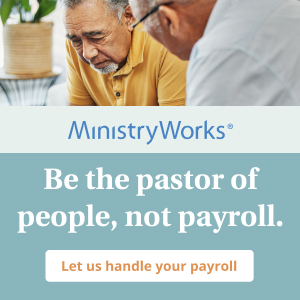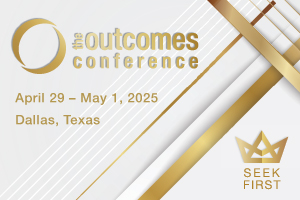
The Path to Leadership Failure By R. Scott Rodin
Time to Assess if You Are on the Path to Failure
Every day, we hear stories of leadership failure. Some are national in scope, some regional, some in our own communities. Whether it’s a moral failing, an ethical compromise, poor decision making or just pure burnout, it’s likely each of you reading this blog is familiar with these stories, or, perhaps, you’re experiencing it in some form in your own life right now.
Leadership failure does not happen overnight or come at us like a flash out of the blue. It’s the product of a process we call the ‘downward spiral’.[1] The downward spiral is a series of bad decisions and compromises we make as leaders that seem harmless at the time but, if left unrestrained, will ultimately pull us down into an ever-deepening abyss. I believe that somewhere on the long downward path toward every leadership collapse, someone failed to step into the lives of these leaders and say, ‘Stop!’ I’m using this brief blog to shout that message out to anyone who may find themselves on such a downward path. Lt me briefly describe this spiral.
Attitude
The first step along the downward spiral path is an owner-leader’s attitude. We may not use this exact language or state it in such clear terms, but when we feel the anxiety, fear, and stress of our leadership role, it indicates that we’re taking this ownership viewpoint. As owners, we will rely primarily on our strength and look to our experience and wisdom for answers to our problems and challenges. Self-reliance is the default of the owner-leader. This sets us on a course of doing our work our way, even if we believe it’s ultimately for God’s glory.
Self-reliance
The next step follows closely on the heels of this choice for self-reliance. If we rely on our own skills and strengths to solve our problems, it is easy for the enemy to disconnect us from the need to pray and seek God’s guidance over our work. This may be subtle. It may come in the form of being too busy for prayer and devotional time or too distracted to focus when we do. Our time with God in devotion and prayer may become stale, and as a result, we may struggle to find the space for it in our busy schedules. Whatever the cause, we will lose our sense of closeness and intimacy with Christ, replacing it with quick and efficient prayers that allow us to get on to the work we know we need to do. Self-reliance will always inhibit our ability to cultivate deep intimacy with Christ. It will throw us back on ourselves to get to work and solve problems independently. After all, people are counting on us, right?
Accomplishments
The next step down this spiral is defining success in accomplishing our work. There’s that term again, our work. An ownership mindset built upon self-reliance will define success according to what we can accomplish using metrics of tangible growth and measurable outcomes. Having lost our sense of intimacy with Christ, this misplaced definition of success becomes the driving force in our leadership, and everything else must bend to its preeminence in our leadership psyche.
Identity
From the steps of self-reliance, a loss of intimacy with Christ, and a definition of success as productivity and accomplishment, it becomes all too easy to tie our identity to our work. After all, we have defined it as our work. In this next step, we seek affirmation and a sense of self-worth in our job, title, and reputation. We know deep inside we are children of God, but what drives us is the affirmation that comes from tangible expressions of success. And having defined success as accomplishments, this pursuit now assumes the place of lordship in our lives as leaders.
Ownership and Self-reliance
Here is the downward spiral to this point: an ownership mindset cultivates an attitude of self-reliance, which robs us of intimacy with Christ, focuses success on accomplishment, and ties our identity to what we do, rather than who we are. From here, the last two deathly steps are all too easy.
The End of Success
On this downward spiral, the relationships we have with others become a means to the ends of our success. If our work as a leader is our work, and our identity and definition of success are tied to it, then we need people to do the things we need them to do for us to be successful. Without meaning, we can become manipulative and coercive in our relationships to get things done. As a result, people can become either how we accomplish our goals or obstacles to that happening, leading us to ask the return-on-investment question, “Am I getting out of this relationship what I need to to achieve my goals?” Again, this is subtle. It’s not something we do overtly, but it becomes the heart and attitude of owner-leaders who have descended to this point on the downward spiral.
Owner-Leader Perspective
The final step is understandable and unavoidable. Owner-leaders will now look to all the resources around them and ask how they can be used to help them achieve success. God’s provision of the time, the talents, and skills of people around them, financial resources, or even the creation itself will be seen by owner-leaders as resources at their disposal to help them achieve what they must achieve to maintain their identity and prop up their self-worth. If you are operating like an owner-leader, you will recognize these attitudes toward resources. Issues of money, time, and the skills of the people around you will be sources of stress and conflict. Decisions in these areas will be made according to bottom-line results and return on investment. Everything will be measured by your definition of success externally and your need for the applause of the people around you and recognition for accomplishments for your identity internally.
Failure
This is the bottom of the downward spiral. It is a place of high pressure, a drive to succeed that can ruin marriages, health, and Christian witness. It produces constant stress and gnawing anxiety that no matter how much you do, it’s never enough. It breeds a quiet sense of fear of failure and a final resignation to despair that leadership is not what you expected. From this place near the bottom of this spiral, leaders are in great danger of moral failings, ethical compromise, depression, and total burnout.
Downward Journey
Are you anywhere on this downward journey? If so, it’s time to STOP! Stop and name it. Name it and surrender it. Refuse to take another step on this perilous descent. Confess to those you trust, clear your schedule, and spend time abiding in Christ. Ask for prayers, listen to people who will speak truth into your life. Do whatever it takes, but commit today to stop playing the owner in your leadership role and let God start you on the steward leader’s upward journey[2].
- For more on this upward journey, see Set Free to Lead.
- [1] See R. Scott Rodin, Set Free to Lead (Kingdom Life Publishing, 2021)
- [2] Set Free to Lead, pp. 106-110
####
Scott Rodin is Senior Consultant/Chief Strategy Officer for The Focus Group. He also serves as a Senior Fellow of the Association of Biblical Higher Education and as board chair for ChinaSource. Over the past thirty-eight years Scott Rodin has helped hundreds of organizations improve their effectiveness in leadership, fund development, strategic planning and board development. Be sure to read Dr. Rodin’s newest book, The Greater Mission.




